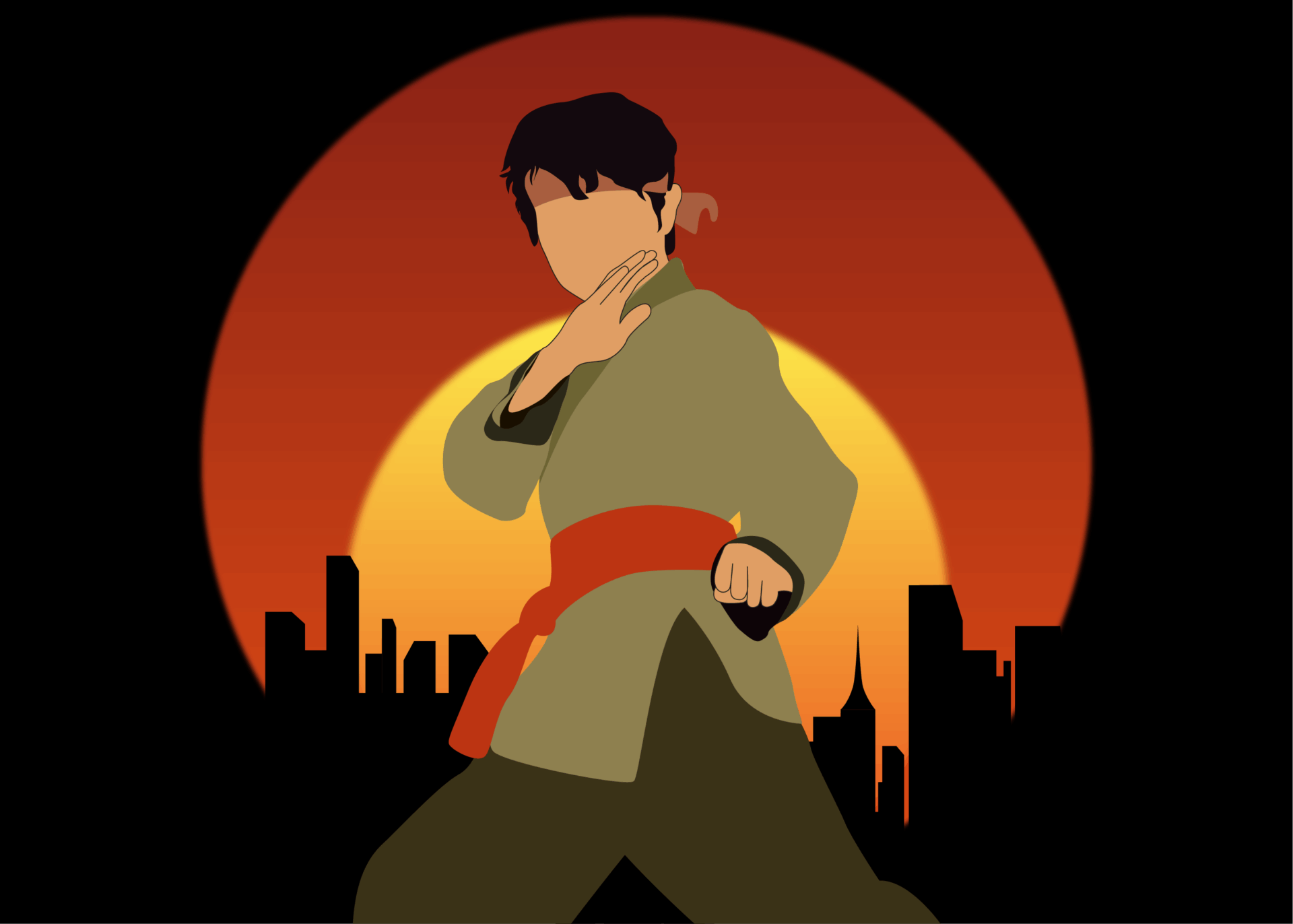The Karate Kid franchise has long been an important part of movie history, offering a refreshing and timeless take on an underdog story through martial arts and mentorship. “Karate Kid: Legends,” released on May 30 this year, takes inspiration from its predecessors — “The Karate Kid (1984)” featuring Ralph Macchio and “The Karate Kid (2010)” featuring Jaden Smith — with each movie following a young boy who tries to adjust to a new life and a new environment, finding solace in the martial arts.
While the movie definitely has a nostalgic factor by featuring the original Ralph Macchio and Jackie Chan from “The Karate Kid (2010),” the movie lacked in its ability to showcase the true spirit of the karate kid franchise. The callbacks to the previous movies felt forced like a lame attempt to make the movie good by sparking up a bit of nostalgia for audiences.
“Karate Kid: Legends” follows Li Fong (Ben Wang), a kung fu prodigy who moved to New York from Beijing. While searching for a quick and easy meal, he finds a nearby pizza shop where he meets Mia (Sadie Stanley) and her father Victor (Joshua Jackson), the owner of the shop.
Mia and Li’s friendship slowly progresses as Mia teaches him how to adjust to life in New York and Li teaches her about his cultural heritage and how to get along with locals in Chinatown.
Having a main character who is already a prodigy in martial arts and who uses his talents to teach someone to box, didn’t feel like it fit into the theme of past karate kid films.
Former karate kids learned that kung fu could be applied to everyday life, and came to understand that it was more than just fighting. The charm came from their process of learning kung fu, where they learned about themselves and ended up becoming more talented than they thought they were. This notion wasn’t present in “Karate Kid: Legends.”
As they wander around New York, Li finds a kung fu studio. Mia tells him that he can’t train there, cautioning him about the studio without further explanation. As the pair walks away, the owner of the studio catches Mia and tells her that her Dad needs to give him a call.
After the owner sees the pair together, he grabs the attention of Conor Day (Aramis Knight), a talented but aggressive kung fu student, and tells him that Mia is hanging around another boy, making Conor jealous and marking Li as one of his targets.
As Li navigates life around New York and in school, he finds himself being pushed around by Conor. Li eventually gets into a fight with his new rival, but freezes, and is beaten by Conor in front of the entire student body.
Defeated, he goes back to the pizza shop and finds comfort with Mia and Victor. One night, as Li and Victor are on their way to the pizza shop, they find themselves in a back alley with a couple of sketchy loan sharks who are there to teach Victor a lesson. Victor is knocked out and Li fends them off, eventually scaring them away — a confusing plot point since he was so easily beaten by Conor. Shocked by Li’s talent, Victor asks to be trained by Li for an upcoming boxing match in order to win some money and pay off his debt to the loan sharks.
Following a training montage but Victor’s unfortunate hospitalization from a big fight, Li decides to give up fighting. Despite his resolve to stop fighting, his former kung fu teacher Mr. Han (Jackie Chan) from “The Karate Kid (2010)” shows up at his house and motivates him to fight. Mr. Han ends up going to Mr. Miyagi’s house in order to find Daniel LaRusso (Ralph Macchio) from “The Karate Kid (1984),” enlisting him to help train Li for a karate competition.
The day of the karate tournament arrives and Li flies through the gauntlet, defeating opponents until only he and Conor are left. Li defeats Conor in a tie breaker on the day of their match, using what he learned from Mr. Han and Daniel.
Overall, the film lacks character building — hardly exploring the complex mindset of the main antagonist, Conor — and only uses the main love interest, Mia, as a plot point to complicate the narrative and carry the story forward.
In addition to drawing away from the Karate Kid franchise’s original appeal, “Karate Kid: Legends” moves too quickly. Characters feel loosely connected to each other as the film takes the easy way out when building backstory for characters. For example, Jackie Chan’s character briefly explains that he knew Mr. Miyagi, but never explains their connection further. The connection just feels like it was a means to get Ralph Macchio in the movie.
Outside of characterization, “Karate Kid: Legends” hastily shifts between different plot points, never allowing viewers enough time to emotionally invest in the various stories.
“Karate Kid: Legends” does not feel as substantive as its predecessors and it lacks the charm that made the original movies become blockbuster hits.
Denise Piolo is an Arts & Entertainment Intern for the spring 2025 quarter. She can be reached at epiolo@uci.edu.
Edited by Corinna Chin and Annabelle Aguirre

